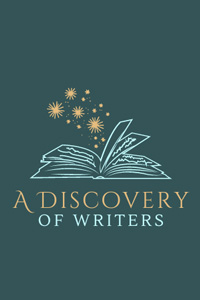In our last article, we introduced ourselves, described how we formed within the crucible of DIY MFA, and touched on how we’ve benefited. We recognized that our writing group has strengthened our identities as writers.
Today we’re exploring how we bring the diversity of our knowledge, skills, and personalities to our metaphorical table and use them to better understand and improve our own writing.
Discovering Each Other’s Personalities and Talents
We vary in educational background, knowledge of writing mechanics, and experience with different writing platforms/theories: Story-a-Day, The Write Practice, Author Accelerator, etc. The one we have in common is DIY MFA. As we mentioned last time, we met in Small Group Coaching, belong to the HUB, and have taken DIY MFA 101 and/or Pixels to Platform.
We vary in our approaches to the novels each of us is trying to revise. Liz makes progress by plugging faithfully away, focused on one story. To avoid pulling out her hair, she mixes her approach by setting word goals, using the Pomodoro Technique, and entering writing challenges like NaNoWriMo.
Brenda and Soleah take inspiration from brief sojourns away from their novels to generate new stories they bring to us for feedback. In that way, Brenda won an honorable mention in Writer’s Digest’s annual contest last year, and Soleah’s story won the Grand Prize of Short Fiction Break‘s Spring Writing Contest. These wins are fantastic because they bolster each writer’s confidence so she can return to editing with enthusiasm.
Janet struggles mightily to get words on the page, and only dire threats help. She uses The World’s Most Dangerous Writing App, a site where you have a couple minutes to write continuously—as in, don’t stop for more than three seconds or the app erases everything you’ve written. Yikes. That only happened once; she swore briefly, then started again. She wrote twelve scenes that way.
Our different approaches show us, up-close, other ways of writing, allowing us to challenge ourselves to write better. We absorb each other’s knowledge and make it work for us.
To Paraphrase Tina Turner, What’s Alchemy Got to Do with It?
According to the Oxford Dictionary, alchemy is “a seemingly magical process of transformation, creation, or combination.” So, what has transformed for us individually because of our group?
We did a quick internal poll to determine key changes:
- Stronger sense of accountability, both in producing writing consistently and in giving each other well-considered feedback
- Stronger belief that I am a writer; belonging to the group is a constant reminder of this identity and of why we want to write
- Joy that comes as the group expresses its pride whenever one of us masters a new skill, meets a word count goal, publishes something, etc.
- Technical improvement; clearer sentences, etc.
- The ongoing reminder that although writing is hard work, it’s fun.
More Transformation: Internalizing Each Other’s Editorial Voices
An unexpected indicator that our group works was when we began to hear each other’s voices in our heads.
Early on, Brenda was flummoxed by the Oxford comma, quotation-mark rules, and the dreaded sentence fragments she learned were peppering her story. With much gentle nagging from Janet (oops—see our next article on missteps!), Brenda eventually absorbed the rules organically into her drafts. Sentence fragments remain but with a purpose, and she now can engage in the great Oxford comma debate. This growing understanding of mechanics gave her the knowledge she needed to feel confident while giving and receiving advice.
Janet had an entirely different problem. She dawdled at finishing revisions because of a long-standing feeling that the “hero” in her romance is stupid and boring. Much to her shock, from the beginning Soleah effusively crushed on this fellow. Janet still finds that hilarious, but in moments of despairing that this character is hopeless, she’s grateful for the memory of Soleah’s swooning, “Ah, Rick!” It gives Janet confidence not to toss the novel. Similarly, Brenda’s “Just get ‘er done!” admonishment rises up to haunt Janet. In a good way.
Liz’s rich technical detail lets the reader visualize her futuristic world; however, we’re often kept at an emotional distance from her main character. Janet continuing to ask Liz what her main character is feeling made her stop and wonder why it’s easier to imagine her other characters’ emotions more readily. This sent Liz on a path of self-discovery where she realized that to fully examine her main character’s inner workings, she had to come out of hiding and safely confront her own past. Now Janet’s questions about emotions and characters pop into her mind whenever she’s fleshing out a new scene or re-writing an older one.
Soleah adds four languages to our cauldron. One of her native languages is French, so this group has been a blessing in giving her people who can closely read her English novel. The “commode” story is now a legend among us. In an earlier novel draft, Soleah used this word over and over, until Brenda and Janet finally couldn’t stay in the scene any longer. The character was putting food on the commode? Soleah was blissfully ignorant that what she wrote was far from what we read. In French, commode means a chest of drawers. In Canadian/American English, it means toilet. We all got a good laugh, and now the word is shorthand for “Please proofread this story for me. I don’t want any commode in there.”
Being Authentic
Despite our many differences, our values and moral compasses are similar. This gives a basis for being less defensive and more trusting of each other’s suggestions. And in this business, trust is everything.
Our Zoom meetings rarely stop under three hours as we often digress into the realm of real life. Because we genuinely are fond of each other, we often get caught up helping discover solutions to personal challenges. We’re all strongly protective of each other and regularly share unsolicited—sometimes annoying—but usually helpful advice. Inevitably, one of us diplomatically steers the conversation back to writing.
When it comes to writing, having these three other voices helps us step out of our own tunnel vision about our stories. No, we don’t always follow each other’s advice—about life or writing. But we do stop to think about what rings true.
By allowing ourselves to incorporate our personal lives into our weekly sessions, we’ve come to know each other well and can, to paraphrase Gabriela, honor each other’s reality.
As good as our group is, it hasn’t always run as smoothly as you might think from our enthusiastic description. We did make mistakes along the way. Stay tuned for our next article.
What about you and your writing group?
Can you think of special knowledge or a talent you can contribute to a critique group? (Please don’t think you don’t have one!) And what skills and/or perspectives are you missing that critique partners could provide?

A Discovery of Writers is made up of four DIY MFA Small-Group Book Coaching graduates who were partnered in the program in 2020, stayed together after our terms ended, and have turned into a tight, very effective writing support group. We love how we work together and would like to explore/share our experience with the Word Nerd community. For more about us individually you can find us here.







